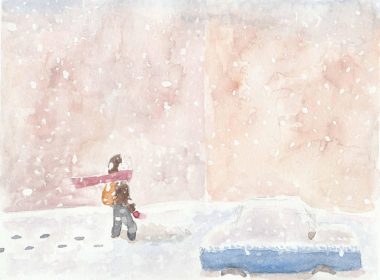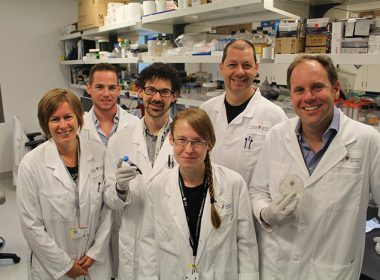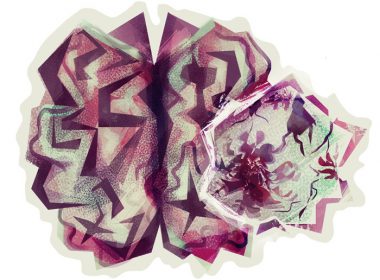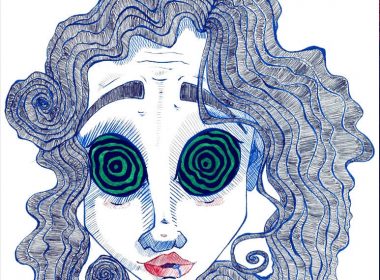Each semester, McGill students spend hours searching for courses that are both interesting and manageable. For those who are not enrolled in a Science major and are feeling particularly adventurous this semester, The McGill Tribune has compiled a list of five fascinating electives that are sure to pique your interest. CHEM[Read More…]
Science & Technology
The latest in science and technology.
Bomb cyclone rings in the New Year
On Jan. 4, 2018, much of the American and Canadian East Coasts were hit with chilling temperatures, snowy conditions, and hurricane-force winds. Iguanas fell from trees in Florida, Boston’s streets flooded with icy water, and parts of New Brunswick saw more than 50 centimetres of snow. The culprit was a[Read More…]
The indestructible deconstructed
A group of McGill scientists were recognized for their cutting-edge research, an example of innovation at its finest. “Innovations are the solutions that no one else would think of,” Don Sheppard, professor of microbiology and immunology and researcher, told The McGill Tribune. Québec Science Magazine recently recognized Sheppard and his team[Read More…]
Breastfed babies are less likely to develop eczema
Since the 1950s, breastfeeding has been almost a taboo subject in the United States and Canada. A simple Google search of “breastfeeding” shows top news stories of women being shamed by strangers for breastfeeding in public. This negative response might help explain the low rates of breastfeeding in many developed[Read More…]
Studying bird speech patterns can explain universal grammar rules
In the 1960s, Noam Chomsky, a linguist at the Massachusetts Institute of Technology, observed that different languages across the world have common patterns. Chomsky postulated the Theory of Universal Grammar (UG), which suggests that humans have created languages and grammar rules that conveniently fit with how our brain is organized.[Read More…]
Distinguishing science from sci-fi in the search for extraterrestrials
Astrobiology, the scientific study of life beyond Earth, was born in 1959 and pioneered by NASA’s Ames Research Center. Along with scientific research, public imagination of extraterrestrial life was broadening. In 1969, when Neil Armstrong, Buzz Aldrin, and Michael Collins successfully landed on the moon, it reached new heights. Since[Read More…]
Brain circuit connectivity directly affects how much we like music
Humans are on the lookout for rewarding stimuli all the time. Our ability to experience pleasure from some of these stimuli is an evolutionary mechanism to ensure the pursuit of basic biological needs, such as eating, known as primary rewards. However, humans also have the capacity to experience pleasure from[Read More…]
Fact or fiction: What is clinical hypnosis?
When one thinks of hypnosis, images of volunteers on stage responding to different names or stimuli come to mind. However, stage hypnosis is often actually the result of someone “faking it.” Dasha Sandra, a U3 Honors student in the Department of Psychology studying hypnosis and hypnotizability at McGill’s psychological research[Read More…]
Say ‘no’ to the nocebo
It’s that time of year again, when mental health initiatives are becoming more active. With finals looming ahead, it may seem like the pervading mood on campus is generally negative. However, it’s important that we question whether these initiatives themselves are responsible for subconsciously swaying our mood this way. The[Read More…]
McGill researcher develops new HIV self-testing app ‘HIVSmart!’
Human Immunodeficiency Virus (HIV) is one of the deadliest viruses in the world and has claimed over 35 million lives to date. Recently, Nitika Pant Pai, Associate Professor at the McGill Department of Medicine and researcher at The Research Institute McGill University Health Centre has helped develop a new app[Read More…]













